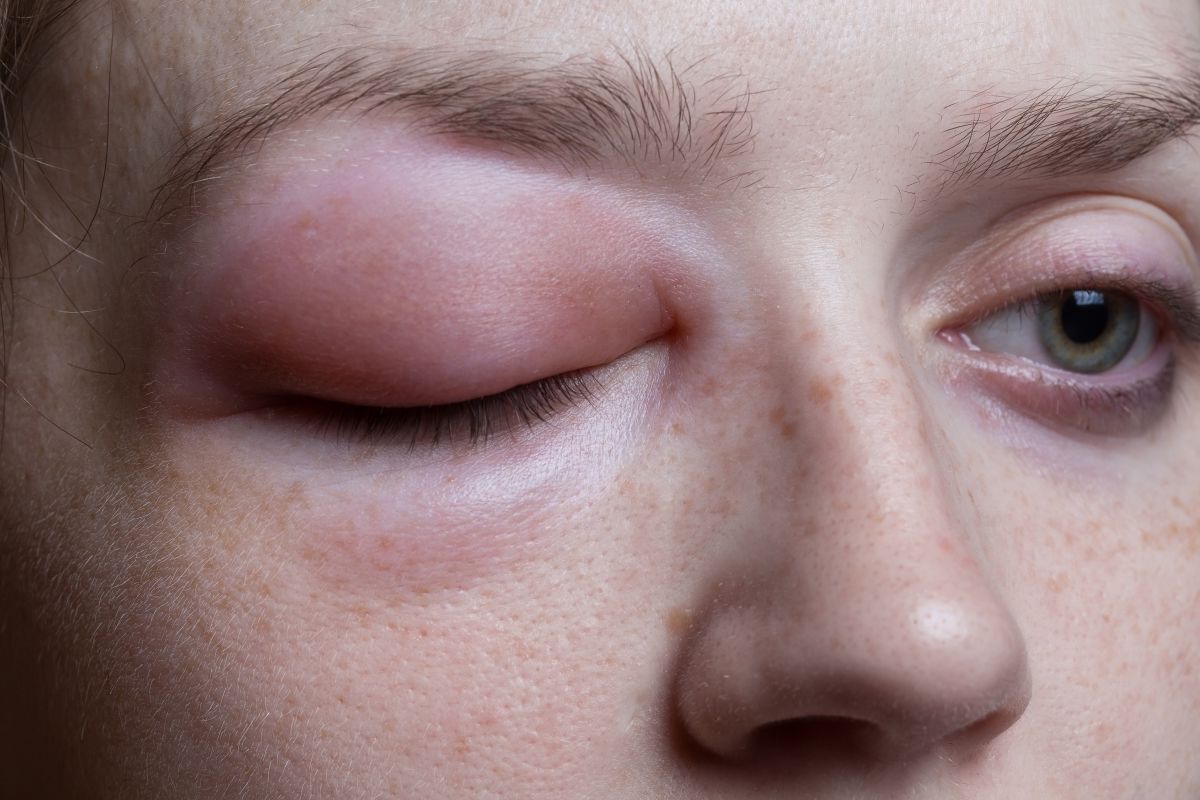
Angioedema is a medical condition that causes sudden swelling beneath the skin, often around the eyes, lips, throat, or extremities. But what exactly triggers these unexpected flare-ups? This condition can be caused by allergic reactions, medications, or even genetic factors. Understanding angioedema is crucial for managing symptoms and preventing severe complications. In this blog post, we'll explore 50 facts about angioedema to help you grasp its causes, symptoms, and treatments. Whether you're dealing with this condition yourself or supporting someone who is, these insights will provide valuable knowledge. Let's dive into the world of angioedema and uncover the essential information you need to know.
What is Angioedema?
Angioedema is a condition characterized by sudden swelling beneath the skin's surface. It can affect various parts of the body, including the face, throat, and limbs. Understanding this condition is crucial for managing symptoms and seeking appropriate treatment.
- Angioedema involves swelling in the deeper layers of the skin.
- It often affects areas with loose tissue, such as the eyes and lips.
- The swelling can be painful and may cause discomfort.
- Angioedema can occur suddenly and without warning.
- It can last for several hours to a few days.
Types of Angioedema
There are different types of angioedema, each with unique causes and characteristics. Knowing the type can help in determining the best treatment approach.
- Hereditary angioedema (HAE) is a genetic form of the condition.
- Acquired angioedema (AAE) develops later in life and is not inherited.
- Allergic angioedema is triggered by allergens like food or insect stings.
- Drug-induced angioedema can be caused by medications such as ACE inhibitors.
- Idiopathic angioedema has no identifiable cause.
Symptoms of Angioedema
Recognizing the symptoms of angioedema is essential for timely intervention. Symptoms can vary depending on the severity and type of angioedema.
- Swelling in the face, lips, tongue, or throat.
- Difficulty breathing if the throat is affected.
- Abdominal pain and cramping in some cases.
- Redness or warmth in the swollen areas.
- Itching or a burning sensation in the affected areas.
Causes of Angioedema
Understanding the causes of angioedema can help in preventing future episodes. Various factors can trigger this condition.
- Genetic mutations can cause hereditary angioedema.
- Allergic reactions to foods, medications, or insect stings.
- Physical stimuli like pressure, temperature changes, or exercise.
- Stress and anxiety can sometimes trigger angioedema.
- Infections or illnesses can also be a cause.
Diagnosis of Angioedema
Proper diagnosis is crucial for effective treatment. Doctors use various methods to diagnose angioedema accurately.
- Physical examination to assess the swelling.
- Patient history to identify potential triggers.
- Blood tests to check for genetic markers in hereditary cases.
- Allergy tests to identify specific allergens.
- Imaging tests like ultrasound to examine internal swelling.
Treatment Options for Angioedema
Treatment for angioedema focuses on relieving symptoms and preventing future episodes. Different treatments are available depending on the type and severity.
- Antihistamines can help reduce allergic reactions.
- Corticosteroids may be prescribed to reduce inflammation.
- Epinephrine injections for severe allergic reactions.
- C1-inhibitor concentrates for hereditary angioedema.
- Avoiding known triggers to prevent future episodes.
Living with Angioedema
Managing angioedema involves lifestyle adjustments and awareness. Knowing how to cope with the condition can improve quality of life.
- Keeping an emergency kit with necessary medications.
- Wearing a medical alert bracelet.
- Educating family and friends about the condition.
- Regular check-ups with a healthcare provider.
- Stress management techniques to reduce triggers.
Complications of Angioedema
While angioedema can be managed, complications can arise if not treated properly. Being aware of these complications is important for overall health.
- Airway obstruction due to throat swelling.
- Severe abdominal pain requiring medical attention.
- Chronic swelling leading to disfigurement.
- Anxiety and stress related to unpredictable episodes.
- Potential for life-threatening allergic reactions.
Prevention of Angioedema
Preventing angioedema involves identifying and avoiding triggers. Taking proactive steps can reduce the frequency and severity of episodes.
- Identifying and avoiding known allergens.
- Taking prescribed medications as directed.
- Regularly monitoring for early signs of swelling.
- Maintaining a healthy lifestyle to reduce stress.
- Consulting with a healthcare provider for personalized advice.
Research and Future Directions
Ongoing research aims to improve understanding and treatment of angioedema. Advances in this field offer hope for better management and potential cures.
- Genetic research to identify new mutations causing hereditary angioedema.
- Development of new medications to treat and prevent episodes.
- Studies on the impact of lifestyle changes on angioedema.
- Research on the role of the immune system in angioedema.
- Clinical trials for innovative treatments and therapies.
Final Thoughts on Angioedema
Angioedema, a condition marked by rapid swelling beneath the skin, can be both alarming and challenging. Understanding its triggers, symptoms, and treatments is crucial for managing it effectively. Whether hereditary or acquired, knowing the difference helps in seeking appropriate medical care. Recognizing the signs early can prevent severe complications. Treatments range from antihistamines to more advanced therapies, depending on the cause. Staying informed and proactive is key to living well with angioedema. Always consult healthcare professionals for personalized advice. By staying vigilant and educated, you can better navigate the complexities of this condition. Remember, knowledge is power when it comes to managing health issues. Stay curious, stay informed, and take control of your health journey.
Was this page helpful?
Our commitment to delivering trustworthy and engaging content is at the heart of what we do. Each fact on our site is contributed by real users like you, bringing a wealth of diverse insights and information. To ensure the highest standards of accuracy and reliability, our dedicated editors meticulously review each submission. This process guarantees that the facts we share are not only fascinating but also credible. Trust in our commitment to quality and authenticity as you explore and learn with us.


